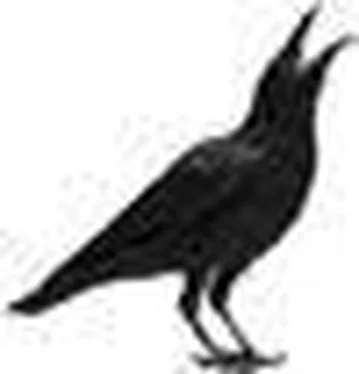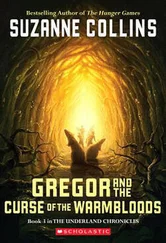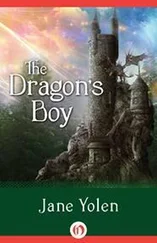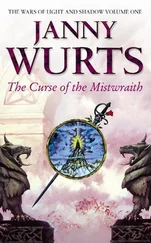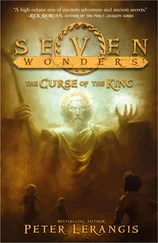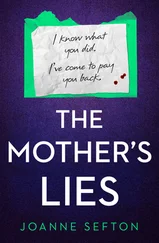“You know,” he said with a twinkle in his eye, “he claimed he was born in 1876.”
“So I’ve heard,” I said. “How old do you think he actually was?”
“Hard to say. Mid- to late nineties. In excellent shape, though, for someone his age.”
“Except the dementia.”
“Well, dementia is inevitable, if you live long enough.”
“What was the cause of death?”
“Old age.”
“Heart attack? Stroke?”
“One of the two, most likely. Hard to tell without an autopsy. But he passed his last physical with flying colors.”
“Did you ever find . . . Was there any indication of . . . maybe something odd about his . . . Can you tell me if you ever took a blood sample?”
“Of course. It was part of the physical.”
“And did you ever find anything . . . unusual?”
The doctor cocked his head quizzically, and I had the impression he was fighting back a smile.
“As in?”
I cleared my throat. Spoken aloud, the idea seemed even more ridiculous. “In the journals, Will Henry talks about being, uh, infected by some kind of parasite when he was around eleven or twelve. An invertebrate like a tapeworm, only much smaller, that somehow gives people unnaturally long life.”
The doctor was nodding. For a split second I misinterpreted the nod as an assent, an indication that he had heard of such a symbiotic creature. And, if that portion of Will Henry’s fantastic life story were true, what else might be? Could it be that there was such a discipline as monstrumology practiced in the late nineteenth century by men such as his guardian, the brilliant and enigmatic Pellinore Warthrop? Was it possible that I had in my possession not a work of fiction but a memoir of a truly extraordinary life that spanned more than a century? The central question, the thing that woke me in the dead of night shivering in a cold sweat, the notion that haunted me as I fought to go back to sleep . . . Could monsters be real ?
My hope—if what I was feeling could be called that—was short-lived. The doctor’s nod was not to signify recognition; it was his way of being polite.
“Wouldn’t that be nice?” he asked rhetorically. “But no, his blood was perfectly normal. A bit high on the bad cholesterol. Other than that . . .” He shrugged.
“What about a CT scan or an MRI?”
“What about them?”
“Did you ever give him one?”
“The state won’t fund unnecessary procedures in a case like Mr. Henry’s. My job was to make his last days as comfortable as possible, and that’s what I did. Do you mind if I ask you a question? Where are you going with this?”
“You mean why does it matter?”
“Yes. Why?”
“I’m not sure. I guess part of it is the mystery. Who was this guy? Where did he come from, and how did he end up in that culvert? And why did he write that journal or novel or whatever it is? I guess the main reason, though, has to do with a promise I made.”
“To Will Henry?”
I hesitated. “I was talking about the director. He gave me the journals and asked me to read them, to see if there might be clues that will help us find his relatives. Somewhere there must be someone who knew him before he came here. Everyone has someone.”
The doctor was smiling. He got it. “And for now you’re the only someone he has.”
I dropped the notes of my interviews with the reader and the doctor into the ever-expanding file I was keeping on Will Henry, and then I dropped the file into a drawer with yet another promise to myself that I wasn’t going to obsess; I would work on it as my schedule permitted. I had a deadline on a book, familial obligations, worries of my own. The old leather-bound books with their cracked hides and yellowing pages remained undisturbed in a stack beside my desk. I was publishing the first three under the title of The Monstrumologist the following year in the hopes that some reader somewhere might recognize something familiar in them.
It was a long shot. For legal reasons the notebooks would have to be presented as fiction. Even if someone recognized the name of William James Henry, it would be taken as a coincidence, but something in his tale might spark a memory; perhaps he had thrilled his children or grandchildren with the story of the bizarre and horrifying creatures called Anthropophagi . He had obviously been an educated man. Perhaps at some point in the distant past he had even published something, maybe not under his own name—if, that is, William James Henry was his name. After he’d been discovered in the drainage ditch, the police had run his fingerprints. The person claiming to be William James Henry had never been arrested, had never served in the military, and had never held any job where registering his fingertips was required by law.
I thought, if those first three notebooks were a work of fiction—and, given the subject matter, they would have to be—then the author, in his demented state, might have come to identify so closely with his protagonist that he became Will Henry. Odder things have happened to flaky writers.
I had spent the entire summer trolling the Internet, making calls, interviewing everyone I could think of who might have that one special nugget of information, that heretofore undiscovered key that would unlock the truth from the stubborn confines of the past.
Late in September, while I sat at my desk suffering from yet another severe case of writer’s block, my eye wandered to the journals. Impulsively I pulled out the fourth volume and flipped it open to a random page. To my astonishment, a newspaper clipping slipped onto the desktop. *My heart racing with excitement, I thumbed through the entire volume, finding other scraps of paper tucked between the pages, as if the journal had served a dual purpose as Will Henry’s diary and as his scrapbook.
Over the next three days I found more memorabilia tucked between the pages of the remaining journals. I began a new file, which I labeled “Cuttings,” organized by their location in the journals (in other words, by volume and page number), with notes outlining possible avenues for more research. While I can vouch for the authenticity of some of them (the New York Times articles, for example), others, like the calling card of Abram von Helrung, have yet to be fully vetted. I cannot say with 100 percent certainty that they are not forgeries or part of some very weird creative exercise on the part of the journals’ author.
R.Y.
Gainesville, Florida
September 2009
* Reproduced in the front matter of this book.
“Logic sometimes breeds monsters.”
—Henri Poincaré
FOLIO IV
Desolation
“FOR THE PANIC OF THE WILDERNESS HAD CALLED TO HIM IN THAT FAR VOICE—THE POWER OF UNTAMED DISTANCE—THE ENTICEMENT OF THE DESOLATION THAT DESTROYS.”
—ALGERNON BLACKWOOD
ONE
“What Am I, Will Henry?”
I do not wish to remember these things.
I wish to be rid of them, to be rid of him . I set down the pen nearly a year ago, swearing I would never pick it up again. Let it die with me, I thought. I am an old man. I owe the future nothing.
Soon I will fall asleep and I will wake from this terrible dream. The endless night will fall, and I will rise.
I long for that night. I do not fear it.
I have had my fill of fear. I have stared too long into the abyss, and now the abyss stares back at me.
Between the sleeping and the waking, it is there.
Between the rising and the resting, it is there.
It is always there.
It gnaws my heart. It chews my soul.
I turn aside and see it. I stop my ears and hear it. I cover myself and feel it.
Читать дальше
